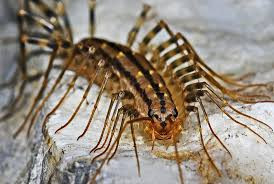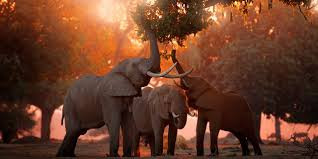
As delegates and observers prepare for CITES COP20 in Uzbekistan in November, a serious challenge has been issued by the Ivory Education Institute: “It’s time the UN international wildlife trade regulating agency, CITES’ 185-member nations stop ignoring the plight of the endangered creatures that inhabit the unseen world beneath its surface.”
The Los Angeles-based organisation devoted to understanding the historic, practical and cultural importance of ivory has observed that CITES has lost much of its relevance by prioritising the protection of charismatic megafauna — elephants, lions, whales — while mostly neglecting important, yet less glamorous species such as dung beetles, earthworms, maggots and all the other insects and invertebrates that play essential roles in the food chain and the natural world.
These “creepy crawlies” are the unsung agronomists of our ecosystems — pollinators, decomposers, pest controllers, and foundational links in the food chain.
The Ivory Education Institute’s managing director, Godfrey Harris, asked which CITES member country will step forward to demand that the organisation treats the creepy crawlies with the same reverence as it gives to the big animals?
Harris warned in a series of observations this month that “while the world rallies to save the ‘big guys’ from the danger of possible extinction, insects are being harvested, trafficked, and traded with virtually no oversight from the world’s animal watchdog agency”.
Just this month alone, four suspects — two Belgians, a Vietnamese and a Kenyan — were on trial in Kenya for trying to smuggle 5 000 queen ants to Europe to populate the glass-sided ant farms of hobbyists there.
Each of the four was sentenced to a fine of US$7 700 or a year in prison for violating Kenya’s wildlife conservation laws.
Given the market value said to be US$1 000 for each queen, this seemed another criminal enterprise that needs to be understood by CITES and stopped by its member states.
- Zimbabwe’s lobby to lift ivory trade ban stutters
- Zimbabwe ivory trade lobby raises questions
- Japan, EU in lukewarm response to Zimbabwe’s lobby to lift ivory ban trade
- Involve communities in conservation, says Ndlovu
Keep Reading
Harris wondered where CITES was while all of this was unfolding, especially as experts in Kenya have been warning of an emerging trend to traffic lesser known wildlife species?
“Likely as not, Harrris noted, they were probably hiding in their Geneva offices, riding business-class flights to meetings of other organisations in exotic locations across the globe, writing carefully-worded memos in three languages that offend no one and leave surface wildlife nowhere close to being better off,” he said.
“CITES bureaucrats seem to be part of a worldwide effort to ignore the unseen, unpretty, and unknown ‘other’ endangered species in our world — the creatures that evoke an ‘ugh’ from most people.”
As Harris has come to realise: “Dung beetles disperse seeds and recycle nutrients. Bees pollinate plants that feed both wildlife and humans. Earthworms aerate the soil, promoting root growth and water absorption”.
“Yet, their populations are changing dramatically due to habitat loss, climate change, and an often completely unregulated international trade fuelled by hobbyists, collectors, and traditional medicine demands.”
Harris adds: “The challenge for CITES is to begin the tough task of understanding which of these species are endangered, what that might mean for humans and devising effective means to confront the organised crime groups likely behind the current smuggling efforts.”
The challenge for the animal rights groups is different. They would have to figure out how to make the creepy crawlies as appealing as a baby elephant splashing in a river or a penguin chick huddling between its parents’ toes.
“If the world and CITES continue to ignore the unseen pillars of the global ecosystems, trees stop growing, soil loses fertility, and the grasslands wither. In short, the very animals that CITES adores for their money raising appeal then begin that awful journey of starving to death,” he said.
“Why? Primarily because of the systemic bias on the part of the animal rights groups. They are driven more by the need to maintain their funding levels than by the science or ecological need we all face.”
Harris argues that CITES has drifted away from its original mandate — to regulate international wildlife trade of those species endangered by the possibility of extinction — and has become overly influenced by animal rights NGOs interested in the easy way out by simply forbidding all wildlife trade.
“Would you rather donate to save a baby rhino or a swarm of wriggling mosquito larvae from the threat of extinction?” Harris asked.
“Simply put, the animal rights NGOs have to make more of the creepy crawly creatures as appealing as Jiminy Cricket of Pinocchio fame or Charlotte (the spider) of Charlotte’s Web”.
Meanwhile, Harris hopes CITES revisits its basic mandate at CoP20 to determine the prioritisation of the ecological functions of species, not just continue to endorse the popularity of some because of their appeal as fundraising objects.
He said the rallying cry for the CITES COP20 meeting in Uzbekistan ought to be: “Make the organisation relevant again” — MORA.
To mark its 50th anniversary this year, Harris urges CITES to undergo what he refers to as a “relevance renaissance.”
“CITES must embrace a holistic and sustainable conservation approach that includes underground, underwater, and treetop species,” he said.
Harris does not shy away from the political undertones of his critique, either.
He wonders whether CITES’ inaction on bee deaths in the United States versus its heavy involvement in African elephant conservation might stem from a lingering colonialist mindset.
“There is an unspoken assumption that rich Western countries can handle their own ecological problems, but poor African and Asian nations need international help,” he said.
“This, as we have all observed, can tend to end up as control through various types of appealing gifts. That is not conservation — it is racial bias.”
In reflecting back on the four young men involved in smuggling queen ants, Harris said: “If we were to lose all the elephants in Africa, we would be devastated, but the grasslands would continue to flourish. On the other hand, if we were to lose all the ant, worm and termite species in the soil, the grasslands, the elephants and all the lesser mammal and bird species sharing the same space would collapse.”
If any individual or organisation that reads this article has ideas on how we can make CITES CoP20 more relevant to the world we face, he would be delighted to hear from you at [email protected].
Koro is a Johannesburg-based international award-winning environmental journalist, who writes independently on environmental and developmental issues.











